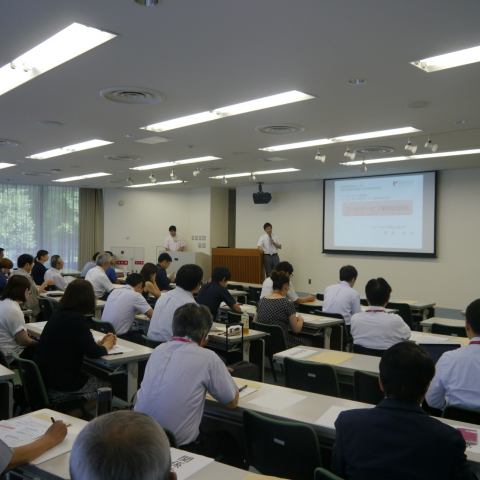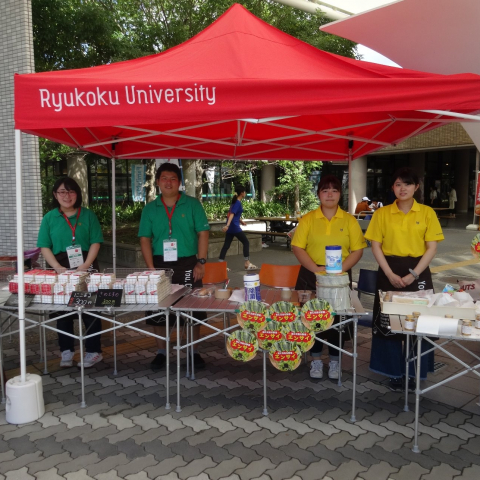【新型コロナ現象について語る犯罪学者のフォーラム】犯罪学と感染症1 〜パンデミックと犯罪動向〜
犯罪学は、あらゆる社会現象を研究の対象としています。今回の「新型コロナ現象」は、個人と国家の関係やわたしたちの社会の在り方自体に、大きな問いを投げかけています。そこで、「新型コロナ現象について語る犯罪学者のフォーラム」を通じて多くの方と「いのちの大切さ」について共に考えたいと思います。
今回は、浜井 浩一教授(本学法学部・犯罪学研究センター 国際部門長)のコラムを紹介します。本稿は、『季刊刑事弁護』104号(現代人文社より2020年10月刊行予定)にに寄稿した『犯罪学者が見た新型コロナパンデミック(下)』の番外編として執筆されたものです。全編は本誌にてご覧ください。
※また本コラムの前編として2020年6月に公開したコラム『新型コロナパンデミックを犯罪学する1』・『新型コロナパンデミックを犯罪学する2』とあわせてご覧ください。
犯罪学と感染症1
パンデミックと犯罪動向
犯罪も感染症と同様に人から人へと広がっていくという特徴を持っている。そして、一般的な犯罪には加害者と被害者とが存在する。新型コロナウイルス(以下、コロナという)による感染症もウイルスを他者に運んでうつす者と、うつされる者とが存在する。そして、最近の日本社会では、コロナをうつす者を加害者として扱う風潮が蔓延しつつある。このコロナに感染し、他者にうつすリスクを持った者を加害者として扱う風潮については最後に論じたいと思う。
前回のコラムでも指摘したが、犯罪はある種の社会的疫病であり、その感染メカニズムや因果関係を追求し、犯罪の蔓延を防止するのが犯罪学である。当然、今回のコロナによるパンデミックは、犯罪学にも様々な影響を与えている。社会政策におけるエビデンスを追求している国際プロジェクトである「キャンベル共同計画」の刑事司法グループにおいても、今回のパンデミックに対する都市封鎖(ロックダウン)などの人々に対する行動規制が犯罪発生にどのような変化を与えるのか、罰則による外出等の行動規制と日本のような自粛要請による行動規制の効果の差異などにも強い関心が寄せられている。*1 犯罪学理論の立場からは以下のようなことが考えられる。
例えば、環境犯罪学は、犯罪(加害)者はどこにでも素材するという前提の下で、加害者や被害者の行動パターンや犯罪が起こりやすい環境を変えることで犯罪の発生を防ごうと考える。コロナ対策も同様に、コロナに感染した人はどこにでも存在するという前提で、他人との間に社会的距離を保つ(social distancing)ことなどを基本とした「新しい生活様式」が提唱されている。(犯罪)被害に遭わないために夜の繁華街などリスクの高い場所にいかないようにすることは、コロナ対策でも同じである。コロナに感染しないためには、人と直接コンタクトをとらないことが最善の方法であり、そうすれば少なくとも身体的暴力やすりなど街頭犯罪が現象するはずである。
人々の日常行動と犯罪被害との関係に注目している日常活動(routine activity)理論*2を当てはめると、都市封鎖の時期には、人々が外出を控えるため街頭犯罪が減少する一方で、DVなどの家庭内暴力や長時間ネット空間に滞在することでネット詐欺などの被害が増加することが予想される。行動規制の程度は、地域によって異なるため、犯罪被害調査などをうまく活用すれば、今回のパンデミックによって日常活動理論の妥当性を検証することも可能となる。*3
都市封鎖は、短期的には街頭犯罪を減少させるかもしれない。しかし、社会的目標とそれを達成する手段との不均衡は社会に緊張状態(フラストレーション)を引き起こし、それが犯罪を増加させる原動力となると説明する緊張理論*4を当てはめると、長期的に見ると、都市封鎖による経済活動の停滞によって経済的に弱い立場の者ほど失業等の経済的困難を抱え込むことになり、これが社会や個人の中に緊張状態を生み出し犯罪が増加することになる。今回のパンデミックによる都市封鎖は、これらの犯罪学理論が現実の犯罪をどの程度説明できるのかを検証する貴重な機会になり得る。
さらには警察などの規制当局に対する信頼の程度と人々の規制遵守のレベルとを比較することで、手続的公正(procedural justice)モデルを検証することもできる。*5 これは社会心理学のモデルであり、法学における適正手続(due process)とは異なる。手続的公正モデルとは、人々が警察などの法執行機関の公正さに信頼を置いているほど、その法執行の正当性が高まり、人々が方を遵守するというものである。これについても、欧州の各国における警察の公正さに対する信頼度と人々の行動規制の遵守の程度を自己申告式の社会調査によって測定し、その結果を比較することで、理論の妥当性を検証することができる。*6 最近、アメリカで警察官によるアフリカ系アメリカ人に対する差別的な対応をきっかけに、世界中で「Black Lives Matter」運動が広がっているが、手続的公正モデルという視点は、今後の警察改革に重要な示唆を与えることには間違いない。
アメリカの認知件数の変化
アメリカのパンデミックやその対応と認知件数との関係については、犯罪学シンクタンクである刑事司法協会(Council on Criminal Justice)がコロナと刑事司法に関する委員会(the National Commision on COVID-19 and Criminal Justice)を立ち上げ、その活動の一環として元アメリカ犯罪学会会長のローゼンフェルド(Richard Rosenfeld)らが「アメリカの都市におけるパンデミック、社会不安と犯罪」*7という報告書にまとめているので、その結果を概観する。*8 この報告書では、2020年の1月から6月までの期間(月別統計)、11罪種について、27都市(平均人口120万人)の警察統計を分析している。
全体的な傾向としてパンデミックの時期には財産犯と薬物犯の件数が大きく減少している。2月から6月にかけて住居侵入盗(空巣)が20%減少し、3月から6月にかけて窃盗が17%、薬物犯が57%減少し、これらは外出禁止等の措置が採られていた期間と連動している。ローゼンフェルドらは外出制限によって不在住居が減少しただけでなく、商店が閉まることで万引の機会が減少したことが影響したと分析している。窃盗犯の中では、事務所荒らしが例外で、5月末の1週間に200%増加している。調査対象となったすべての都市において同じ傾向が見られ、都市封鎖によって商店等が休業し、無人状態にあったからという理由だけでなく、増加が特定の週に集中していることから、ミネアポリスで発生した警察官による黒人男性フロイド(George Floyd)氏殺害事件に対する抗議活動に伴う器物損壊や略奪などと連動して発生している可能性が指摘されている。また、過去3年間減少傾向であった強盗も3月末から増加に転じ6月にかけて27%増している。
アメリカにおける暴力犯罪は、前年度までの傾向と比較して、殺人や武器を使ったり障害を負わせたりする重大な暴力事件(Aggravated assaults)が5月末から6月にかけて35%増加している。同じように、殺人についても37%増加している。ローゼンフェルドらは、(手続的公正モデルの観点から)背景にフロイド氏殺害事件による警察に対する信頼失墜があると分析している。特にシカゴ、フィラデルフィア、ミルウォーキーなどで5月下旬から6月にかけて殺人が増加傾向にあった。都市封鎖によって増加が予想されていたDV(家庭内暴力)については13都市において増加傾向が認められるが、DVは前年以前から増加傾向にあり、前年の増加と比較して統計的に有意といえるほどの増加は認められていない。薬物犯罪については、そもそも被害者がいない犯罪であるが、外出規制による路上での密売の機会の減少や警察による職務質問の強化だけでなく、警察活動自体が薬物取締り以外の活動へとシフトされた結果、摘発数が減少した影響も考慮しなくてはならない。
日本の認知件数の変化
次に日本の認知件数の状況をみてみよう。日本では月別の認知件数は一般公開されていないため本稿では政府統計ポータルサイト「e-Stat」から入手可能な2020年上半期(1月〜6月)の犯罪統計資料*9を使用する。この犯罪統計資料は、罪種別に前年(2019年)同期からの増減も掲載されていることから、ローゼンフェルドらの報告と同様に、罪種別にその増減傾向の変化をみることでパンデミックによる緊急事態宣言や外出等の自粛要請の影響を検討する。(2020年上半期犯罪統計資料によると)日本でもアメリカと同様に、侵入盗・乗り物盗・非侵入盗を中心に窃盗系の犯罪の認知件数が、2019年と2020年の同時期(1月〜6月)とを比較すると、それぞれ12.5%、22.2%、16.2%と大きく減少している。日本の認知件数は2002年以降主要犯罪のほとんどにおいて減少しているが、(犯罪統計の年間資料*10によると)2018年から2019年にかけての1年間の認知件数の減少率が、それぞれ7.9%、10.0%、7.7%であり、今年上半期の減少率のほうが2倍程度大きいことがわかる。アメリカと異なり事務所荒らしについても14.2%減少するなど休業により不在となっている店舗等への侵入盗についても減少傾向が続いている。
暴行と傷害といった粗暴犯の認知件数についても、(警察に対する信頼が揺らいでいる)アメリカとは異なり、2019年と2020年の同時期(1月〜6月)とで、それぞれ9.7%、10.9%と減少している。2018年から2019年にかけての減少率が、それぞれ3.5%、5.9%であったことと比較すると、窃盗犯と同じように今年の上半期の減少率のほうが大きい。
凶悪犯罪に分類される殺人と強制性交についても2018年から2019年にかけては、それぞれ3.8%、7.5%増加していたにもかかわらず、2019年と2020年の同時期(1月〜6月)とで比較すると、それぞれ7.4%、3.9%の減少に転じている。強盗については、やや異なる傾向が見られる。減少傾向は2018年から続いているものの、2018年から2019年にかけての1年間に15.4%減少していたものが、2019年と2020年の同時期(1月〜6月)とで2.1%の減少率にとどまっている。今年の上半期、つまりパンデミックの時期には、他のほとんどの犯罪の認知件数が減少している中で、強盗については減少率の低下が顕著であり、その検挙人員を年齢層別にみると、絶対数は多くないものの少年と20代の若年成人の強盗が、前年同期と比較してそれぞれ少年が66人増加して177人、20代が20人増加して243人となっているなど若年者による強盗の増加が強盗認知件数の減少率を低下させている可能性がある。
アメリカと日本との認知件数の変化を時系列にみるとパンデミックによる都市封鎖、つまり外出等の制限が短期的には犯罪の認知件数の低下につながっている可能性がうかがわれる。ローゼンフェルドらの報告書にもあるが、環境犯罪学(特に日常行動理論)が予想するように、外出する機会が減れば、万引きする機会も、すり等の他人との接触による犯罪被害に長くなれば空巣に入られる機会も減るはずである。日本ではほとんどの主要犯罪において認知件数が減少しているのに対してアメリカでは、殺人や重大な暴力犯罪が増加しているが、これは、ローゼンフェルドらの報告書でも指摘されていたように、アメリカの場合、ミネアポリスで発生したフロイド氏の殺害事件が全米において警察の黒人差別に対する反対運動を引き起こし、それによって警察に対する信頼が失われた影響が大きいと考えられる。
一方、日本では最近若者による強盗の増加や、特殊詐欺の受け子や出し子として検挙され少年院に収容される少年の増加など、コロナによってアルバイト等の収入源を失った若者が犯罪に加担する傾向が見られ、都市封鎖による経済活動の停滞による影響が出始めている。この現象は、経済的な欲求を満たす手段が不足することでフラストレーションが高まり、欲求を満たすための代替手段として犯罪が選択されるという緊張理論による説明が可能であり、今後、長期的に観察していく必要がある。
─────────────────────
【補注】
*1 https://campbellcollaboration.org/news-and-events/news/campbell-response-to-covid-19-pandemic.html
*2 Cohen, Lawrence E.; Felson, Marcus. "Social Change and Crime Rate Trends: A Routine Activity Approach". American Sociological Review. 44(4): 588-608, 1979.
*3 https://hfg.org/Violence%20and%20the%20Pandemic.pdf
*4 Merton, Robert. "Social Structure and Anomie". American Sociological Review. 3(5): 672-682, 1938.
*5 https://www.vrc.crim.cam.ac.uk/sites/www.vrc.crim.cam.ac.uk/files/pn_policing_the_pandemic.pdf
*6 筆者らの研究によってこの手続的公正モデルは日本のデータには当てはまりにくいことがわかっている。今回のパンデミックでは、日本の緊急事態宣言が、罰則を伴わない要請レベルの行動規制であったにもかかわらず多くの店舗が休業し、人々が外出を自粛しいたことが話題となったが、日本人の規制遵守には手続的公正とは異なる力が作用しているように思われる(津島昌弘=浜井浩一「手続き的公正(プロシーデュアル・ジャスティス)――信頼される刑事司法とは?」 浜井浩一編『犯罪をどう防ぐか』〔岩波書店、2017年、323〜342頁〕)。
*7 https://cdn.ymaws.com/counciloncj.org/resource/collection/D26974EF-0F75-4BDE-ADE7-86DA0741DC49/Impact_Report_-_Crime.pdf
*8 なお、この報告書では、前年度等の上半期データとも比較して「急激な構造変化」(structual breaks)を考慮した時系列分析を実施してパンデミックによって統計的に有意な変化が起こったかどうかを分析している。
*9 https://www.e-stat.go.jp/stat-search/files?page=1&layout=datalist&toukei=00130001&tstat=000001142707&cycle=0&stat_infid=000031966714&tclass1val=0
*10 2019年および2018年の犯罪統計資料は年間の統計である。
https://www.npa.go.jp/publications/statistics/sousa/statistics.html

浜井 浩一教授(本学法学部・犯罪学研究センター 国際部門長)
浜井 浩一(はまい こういち)
本学法学部教授・犯罪学研究センター 国際部門長・「政策評価」ユニット長、矯正・保護総合センター長
<プロフィール>
法務省時代に矯正機関などで勤務。法務総合研究所や国連地域間犯罪司法研究所(UNICRI)の研究員も務め、国内外の犯罪や刑事政策に精通。犯罪統計や科学的根拠に基づいて犯罪学を研究中。
関連記事:
>>【犯罪学Café Talk】浜井 浩一教授(本学法学部 /犯罪学研究センター国際部門長)
https://sites.google.com/view/crimrc-covid19/



